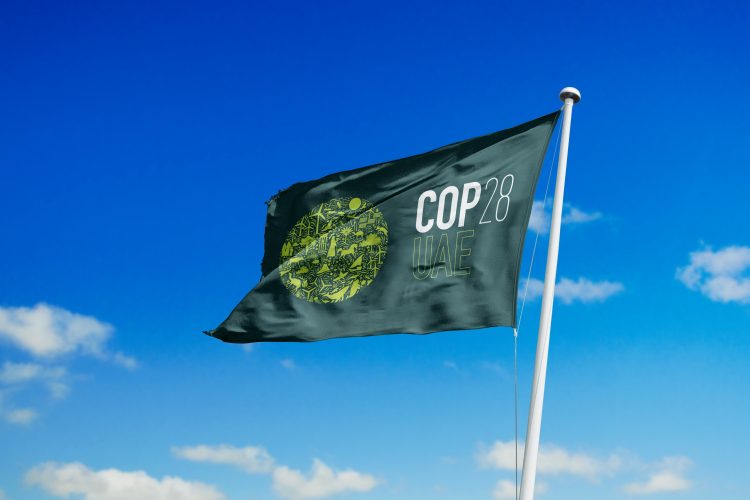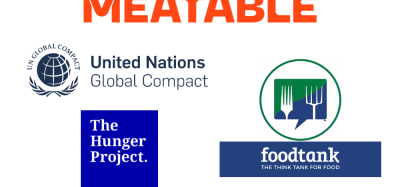Was food really on the menu at the first ‘Food COP’?
- Like
- Digg
- Del
- Tumblr
- VKontakte
- Buffer
- Love This
- Odnoklassniki
- Meneame
- Blogger
- Amazon
- Yahoo Mail
- Gmail
- AOL
- Newsvine
- HackerNews
- Evernote
- MySpace
- Mail.ru
- Viadeo
- Line
- Comments
- Yummly
- SMS
- Viber
- Telegram
- Subscribe
- Skype
- Facebook Messenger
- Kakao
- LiveJournal
- Yammer
- Edgar
- Fintel
- Mix
- Instapaper
- Copy Link
Posted: 18 December 2023 | Joanna Trewern | No comments yet
Joanna Trewern takes you inside COP28 and asks whether, despite all the talk, food really made it onto the menu in Dubai.


In the run up to COP28, I, along with the broader community of stakeholders working on food systems, had high hopes. Food was finally going to be on the map, and recognised as a key part of the solution for addressing climate change. But I’m coming out of the two-week long conference with mixed emotions, and more questions than answers.
What was different about COP28?
Week one brought some exciting successes. Two Leaders’ Declarations featuring food systems, nutrition and sustainable consumption were launched and endorsed by over 130 signatories including the EU, USA, Australia, Brazil and China. Through the Sustainable Agriculture, Resilient Food Systems and Climate Action declaration, nations have committed to including food in their national climate and biodiversity plans (NDCs, NAPs, and NBPs).
Food had its own dedicated day on 10 December, featuring over 150 events exploring the future of food and how to deliver on the climate, nature, nutrition nexus. Events on food weren’t limited to this day either – a total of more than 550 took place across the conference.
For the first time, high-level speakers highlighted the role of food in climate mitigation and adaptation – including the need to shift to healthy plant-rich diets and transition to sustainable production practices. The World Health Organisation’s (WHO) Director-General Dr Tedros Adhanom Ghebreyesus described food systems transformation “by shifting towards healthier, diversified and more plant-based diets” as essential for managing climate impacts and improving health outcomes.
Healthy, sustainable catering was a new focus for the event, with menus across the site being at least two thirds vegetarian or vegan, and half of all options served aligning with UAE’s national dietary guidelines and falling within planetary boundaries for carbon and water use. Designing these ‘1.5 degree aligned menus’ meant that delegates could have breakfast, lunch, dinner and a snack within their ‘personal daily food carbon budget’ of 2.3kg CO2eq. On a personal note, I was pretty happy with the food, and enjoyed a variety of options including chickpea and lentil salad, tofu masala naan and bean and Mexican rice bowls. It was also a joy to receive just the right amount – no oversized portions or food waste here!
We risk an ambition-action gap
While week one saw food recognised as part of the puzzle, week two left much to be desired as ministers struggled to reach agreement in the formal processes.
The Global Stocktake (GST) is the first nation-led assessment of progress toward meeting Paris Agreement goals, and a report released by UN Climate Change in November showed we’re way off track. The GST text that will be published at the end of COP28 is intended outline the actions countries need to take to meet climate goals. Negotiations over the GST text during the conference were fraught, and food systems didn’t even get a mention in the first draft. The final text includes a couple of references to food, sustainable consumption and food systems – hardly adequate for a system which is responsible for a third of global emissions.
Similarly, the Sharm-El Sheikh Joint Work on Food and Agriculture (SSJW) negotiators failed to reach an agreement, which means that after two years of hard work establishing the process, progress will be stalled until the UN climate conferences in Bonn in June 2024.
Food is now on the map, but the road to get there is far from clear.
Can we agree on the future of food?
On the side-lines of the negotiations, diverse actors reached consensus on the future of food. ProVeg International brought together livestock and plant-based advocates in a panel discussion. The two ‘sides’ which are traditionally pitted against each other agreed on the fundamentals: in overconsuming Global North countries, we need to reduce consumption of animal-sourced foods and shift toward less intensive methods of production. And in Global South countries we should recognise the important role that smallholder livestock farmers play in addressing malnutrition.
But on the ‘main stage’, most leaders didn’t even mention food – let alone meat reduction – in their national statements, showing there’s still much work to be done. And while the Food and Agriculture Organisation’s roadmap to 1.5 degrees for the food and agriculture sector highlights the need for diet shift, it also mentions the need to intensify livestock production in countries such as New Zealand and the Netherlands. Is this due to an obsession with carbon intensity as the key metric, or perhaps the result of industry lobbying?
The role of new technologies was also under-discussed. At the current moment in time, livestock plays an important role in countries where undernutrition is an issue. But what if we could increase the bioavailability of vitamins and minerals in plant-based proteins such as wholegrains making them comparable with animal-sourced foods? This is something the Mineral Shift project in Sweden is exploring.
The road to COP30
Reassuringly, food has now made it into the climate narrative. But it’s not yet a top priority for most national leaders. While the declarations and country endorsements are fantastic, they’re non-binding. We risk an ambition-action gap unless countries commit to implementation over the next couple of years.
Leading food and beverage companies can play a key role on the road to COP30. We need to develop all solutions equally – from maximising the nutritional value of plant-based foods to improving the sustainability of livestock production. This is something the food and beverage industries have a key role in enabling through finance, innovation, and collaboration and implementation across the supply chain.
About the author
As Head of Research & Science, Joanna leverages her significant research, policy and corporate engagement experience to ensure that ProVeg’s research activities drive real-world impact. Joanna has a PhD in Sustainability which investigated the role of retailers in enabling more sustainable consumer diets, and she was previously Head of Consumption at WWF where she led the organisation’s work on healthy sustainable diets.









